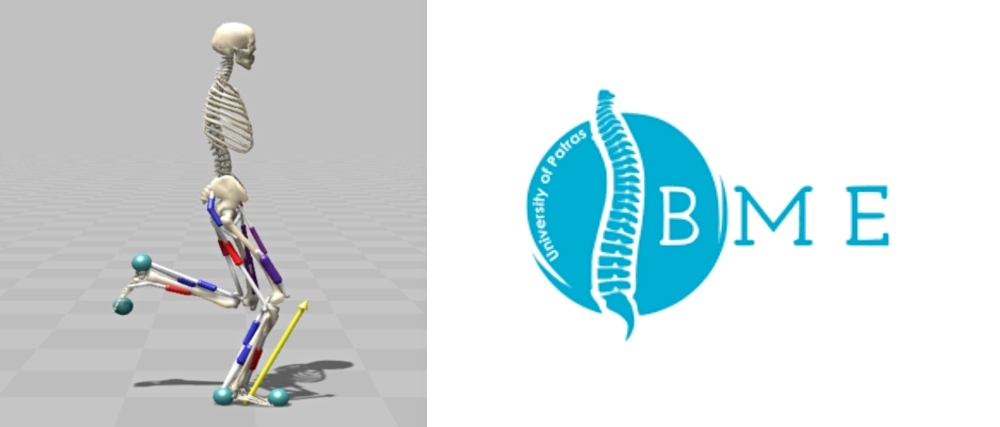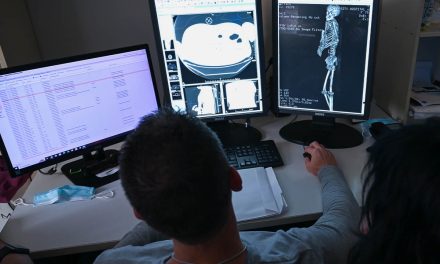The web portal Study in Greece is campaigning for the promotion and international visibility of Greek Universities and the comparative educational advantages of our country. In particular, the campaign focuses on the foreign language study programmes that Greek Universities offer to Greek and international students. The initiative is supported by the General Secretariat of Higher Education of the Ministry of Education and Religious Affairs and the General Secretariat for Greeks Abroad and Public Diplomacy of the Ministry for Foreign Affairs. In this context, a number of educational programmes and actions are presented in detail on a regular basis, such as undergraduate and postgraduate programmes, summer schools etc, to inform international students about the many foreign language options offered by Greek Universities.
Study in Greece interviewed Professor Konstantinos Moustakas, Director of the MSc in Biomedical Engineering offered at the University of Patras (UPatras), about the programme, its features and what it has to offer to international students.
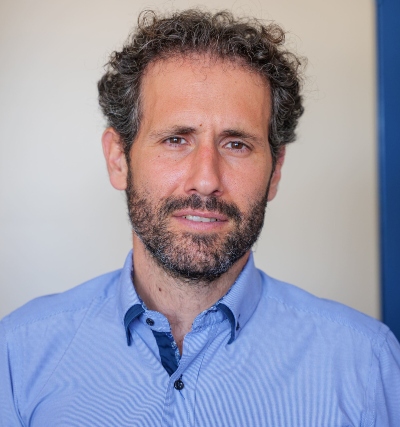 Konstantinos Moustakas is Professor at the Electrical and Computer Engineering Department of the University of Patras, Head of the Visualisation and Virtual Reality Group, Director of the Wire Communications and Information Technology Laboratory and Director of the University’s MSc Programme in Biomedical Engineering. He serves as an Academic Research Fellow for ISI/Athena research centre. His main research interests include virtual, augmented and mixed reality, 3D geometry processing, haptics, virtual physiological human modeling, information visualisation, physics-based simulations, computational geometry, computer vision, and stereoscopic image processing. He has been the (co)author of more than 250 papers in refereed journals, edited books & international conferences.
Konstantinos Moustakas is Professor at the Electrical and Computer Engineering Department of the University of Patras, Head of the Visualisation and Virtual Reality Group, Director of the Wire Communications and Information Technology Laboratory and Director of the University’s MSc Programme in Biomedical Engineering. He serves as an Academic Research Fellow for ISI/Athena research centre. His main research interests include virtual, augmented and mixed reality, 3D geometry processing, haptics, virtual physiological human modeling, information visualisation, physics-based simulations, computational geometry, computer vision, and stereoscopic image processing. He has been the (co)author of more than 250 papers in refereed journals, edited books & international conferences.
Mr. Moustakas, please tell us in a few words what the interdepartmental Master’s programme in Biomedical Engineering, offered by the University of Patras, deals with.
The Master’s programme is a collective effort by four departments of the University of Patras
- Electrical & Computer Engineering Department (ECE)
- Computer Engineering & Informatics Department (CEID)
- Mechanical Engineering & Aeronautics Department (MEAD)
- School of Medicine
The Master’s Programme in Biomedical Engineering at the University of Patras aims to educate students in recent scientific advances in engineering and sciences and the way these are applied to solving problems in biology and medicine. Modern engineering encompasses sophisticated approaches to measurement, data acquisition and analysis, simulation, and system identification. The increasing value of mathematical models in the analysis of living systems can significantly shape our understanding of these complex systems and advance the field. The programme offers in-depth training and development of research, practical and soft skills in biomedical engineering. Typical scientific areas tackled by the MSc programme include, but are not limited to, Biomechanics, Signal and Image Processing, Biomaterials, Mixed Reality in Health, In Silico Medicine, Medical Robotics, Medical Instrumentation.
Given that the official language of the programme is English, please tell us why this Master’s is addressed to international students and which are the academic and professional benefits for them.
The reason for choosing English as the language of the MSc programme is twofold. Firstly, we aim at international collaborations both in terms of attracting international students, but also in terms of tight educational and research collaborations with leading higher education institutes in Europe. Several collaborations supported by the necessary Memoranda of Understanding are in place and students are motivated to exploit mobility tools like Erasmus+ for one semester. Typically students use mobility tools in the context of their diploma thesis that can be performed in collaboration with a collaborating lab or company. Secondly, by choosing the English language, Greek students themselves indirectly better understand terminology and gain access to a global research ecosystem that widens their horizons and better highlights the huge potential of the field of Biomedical Engineering.
Do you think that extroversion and internationalisation efforts will benefit Higher Education?
Definitely! The evolution of modern communications and the internet has actually united the worldwide research community. Now, collaborating with a lab abroad, even oversees, is not much more difficult than collaboration with a local lab. Thus, I see internationalisation as the only way to move forward if we opt for education and research of high quality, excellence and collaborations!
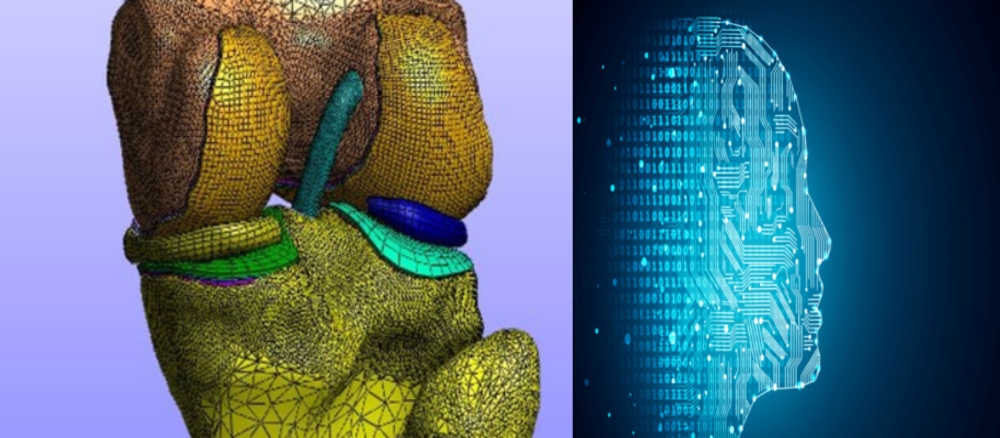 Is University of Patras on this “trajectory” with international initiatives and collaborations?
Is University of Patras on this “trajectory” with international initiatives and collaborations?
University of Patras has indeed made systematic efforts towards this direction in the last years. With respect to research, it is one of the leading academic institutes in Greece when it comes to international collaborations and funded international research. As long as education is concerned, it is actively involved in Erasmus+, while several labs are supported by Erasmus-Mundus projects that boost international cooperation in education. Moreover, a number of joint PhD programmes between the University of Patras and EU academic institutes are leading to breakthrough results and innovations.
What does Patras have to offer to an international student and how could it attract more students from the Italian peninsula due to its geographical location?
Patras is considered as the “Gate to the West” for Greece. It has served for decades as a commercial hub, while its busy port is a focal point for trade and communication with Italy and the rest of Western Europe. The city is also the host of three research institutions, and is known as a place that offers students high quality of life, with a very walkable city centre and a modern “green” University Campus. Patras thus is an attractive option for European students that have already selected Patras for their graduate studies and Erasmus mobility. All aforementioned facts perfectly complement the academic, research and employment prospects offered to students.
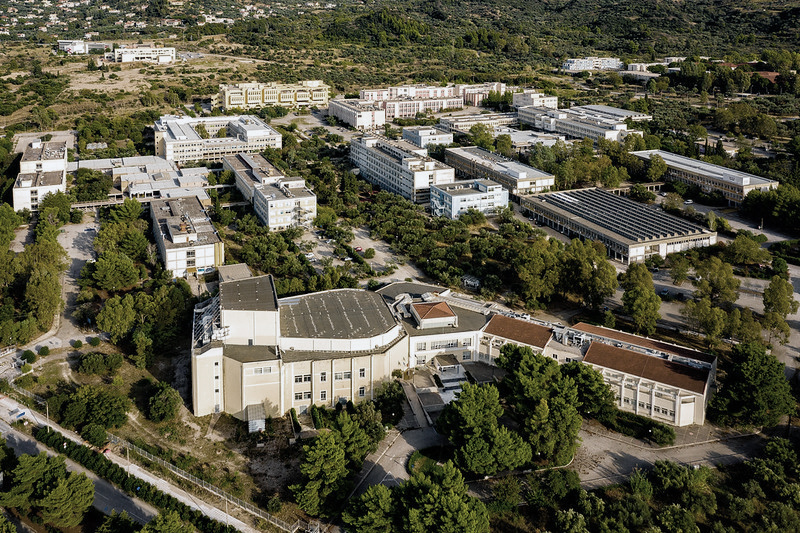 Please tell us a few things about the University of Patras – its history, its departments, its spirit and the research carried out by the university.
Please tell us a few things about the University of Patras – its history, its departments, its spirit and the research carried out by the university.
The University was founded in the city of Patras in 1964 and started to operate in the academic year 1966-1967. In June 2013 the University of Western Greece was also integrated into the University of Patras. The University of Patras is the third largest University in Greece in terms of students, faculty members, administrative personnel, number of departments and degrees awarded. It includes 35 Departments covering a wide range of disciplines, and hosts 161 laboratories and 17 fully equipped clinics. Besides its distinguished path in education, the University of Patras excels in various fields of basic and applied research. The University of Patras has acquired international prominence in research areas such as Health, Environment, Biotechnology, Mechanics, Electronics, Informatics and Basic Science. A number of its academic Departments, laboratories and clinics have been recognised as centres of excellence on the basis of international assessment. The University of Patras has acquired a reputation for producing quality and innovative research and for taking part in a plethora of research projects, scientific organisations and research groups. Together with its educational and research work, the vibrant campus life of the University of Patras attracts many students every year as their first and foremost choice for Higher Education studies.
Read also via Greek News Agenda: Professor Dimitris Kugiumtzis presents the MSc in BioMedical Engineering at AUTh; Professor Michael Tatarakis presents the Msc in Laser, Plasma & Applications at HMU
N.M. (Images from the MSc’s official website, video from the MSc’s YouTube Channel)

